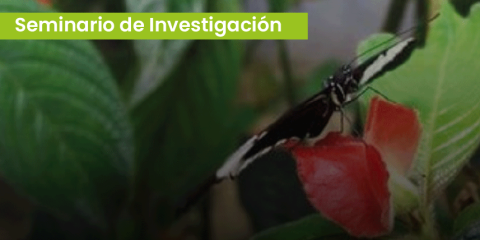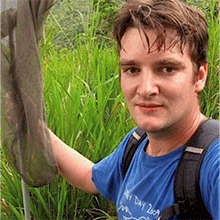
Genes, brains and behavioural isolation in Heliconius butterflies
Many species remain separate not because they fail to produce hybrids, but because their individuals effectively ‘choose’ not to mate in the first place. Although the significance of behavioural barriers has been recognized at least since the Modern Synthesis, we still know little about the genetic changes that underlie the evolution of mating preferences, or variation in behaviours across natural populations more broadly. The warning patterns of the Neotropical butterflies Heliconius cydno and H. melpomene are under disruptive selection for mimicry, and are also used during mate recognition.
We have previously identified a large effect QTL for variation in visual preference behaviours tightly linked to the gene optix, which is responsible for the red-white shift in wing pattern in these species. Integrating these results with further QTL experiments, gene expression and population genomic analyses more broadly across the cydnomelpomene clade, we now have identified a single candidate gene responsible for shifts in visual mate preference behaviours, specifically a regucalcin. CRISPR/cas9 experiments confirm that regucalcin knock-out males are less likely to court conspecific females.
Our data strongly suggest regucalcinalleles have jumped the species barrier, and also contributes to behavioural isolation in these butterflies.
Conferencista

Prof. Dr. RICHARD MERRILL, Facultad de Biología, Universidad de Múnich (LMU)
Ver más

Prof. Dr. RICHARD MERRILL, Facultad de Biología, Universidad de Múnich (LMU)
“My group investigates the ecological, genetic and developmental basis of adaptive behaviours that contribute to diversity and speciation. Our work is currently focused on Heliconius butterflies, and combines long term field and insectary based projects in the tropics, with modern genomic and genetic techniques”
Prof. Dr. Richard Merrill - Evolutionary Biology - LMU Munich
